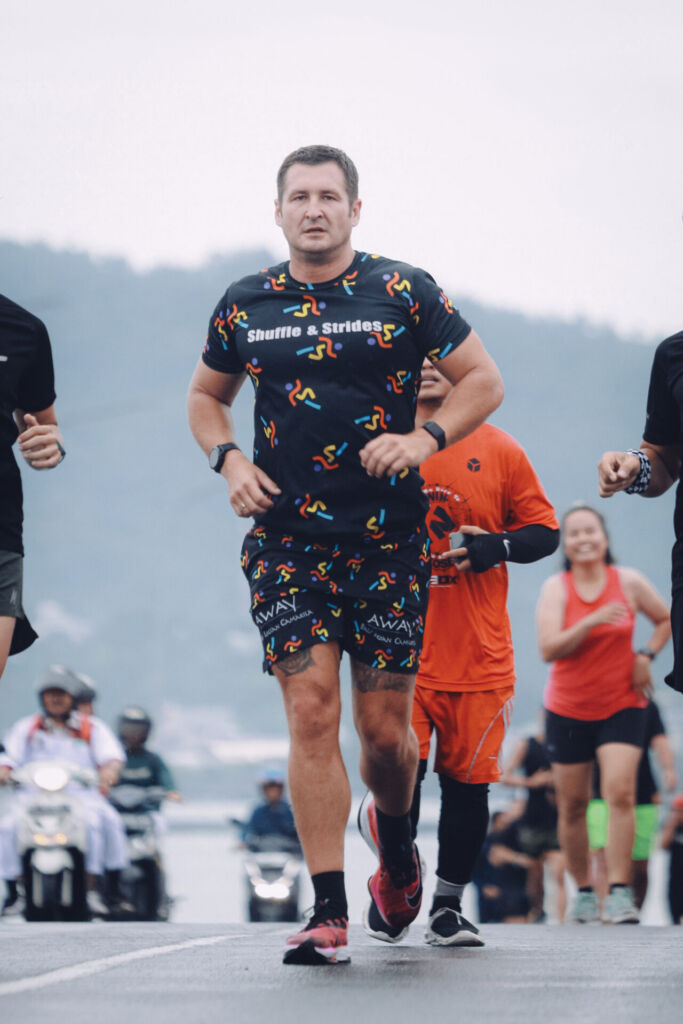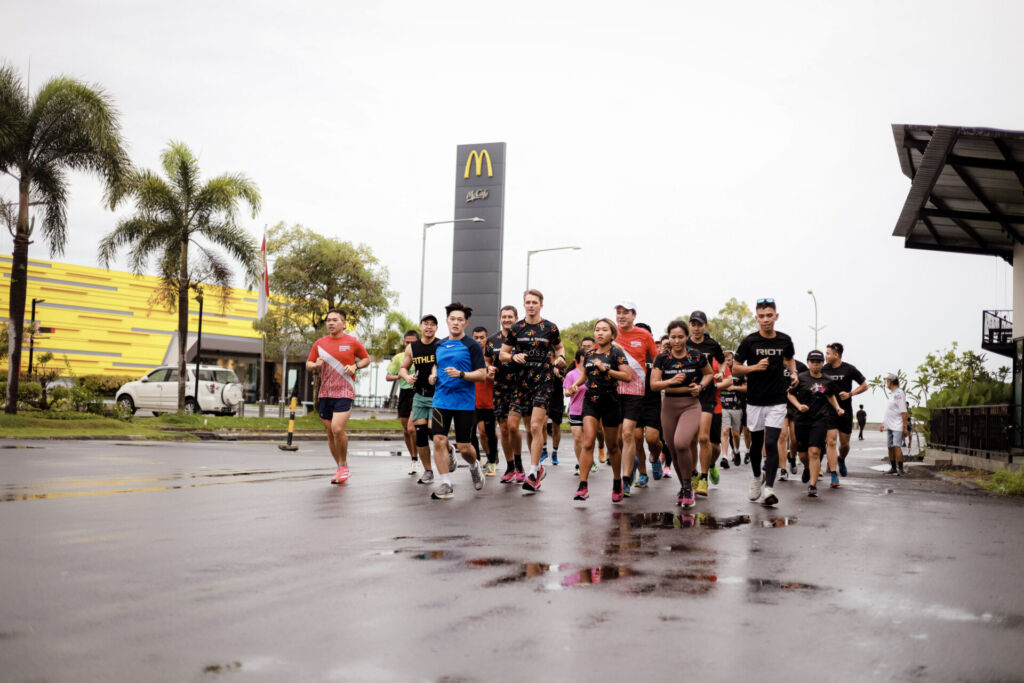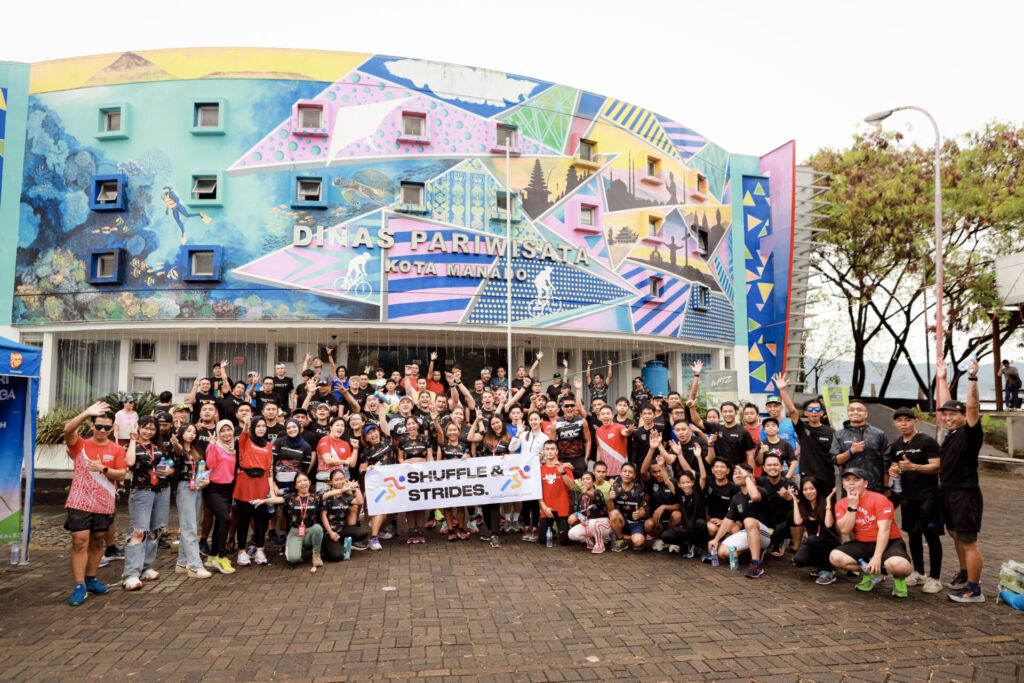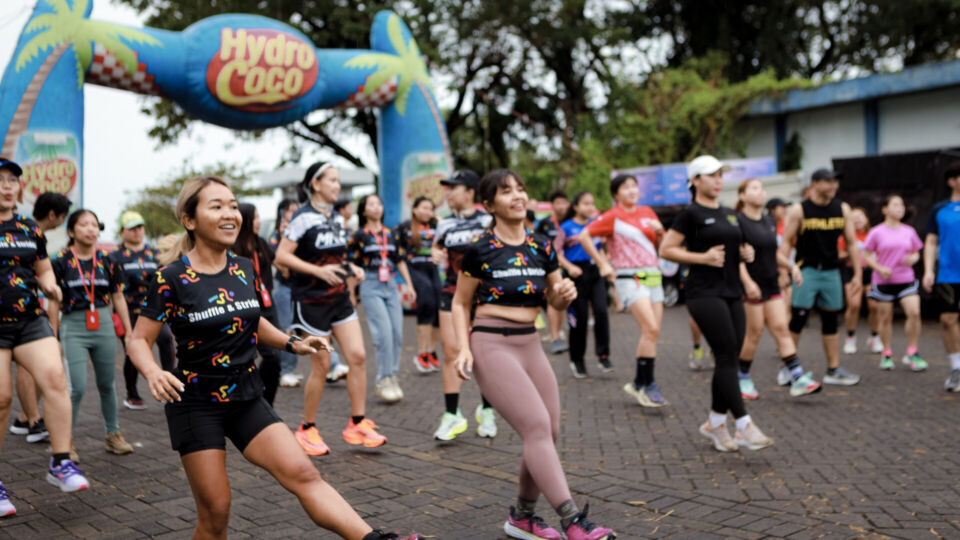Jack Ahearn, then 17, arrived on the Island of Gods on May 1, 2016, to check in with a local drug rehabilitation center.
While some details of that day eluded his memories, Ahearn, who was addicted to methamphetamine for years, knew that the move was what he needed in order to turn his life around.
“I was a broken teenager who had lost all control of his life and was causing great harm to everyone else around him. I suffered great pain and was on my way to jail or death,” Ahearn said in an interview with Coconuts Bali, adding that he reached rock bottom on April 22 that year.
As a kid, Ahearn was exceptionally gifted in sports, to the point that he had considered pursuing a career in either cricket or the Australian Football League (AFL). However, a drug addiction dragged him down and, as Ahearn put it, he threw all of his opportunities away as he veered into the tumultuous grip of methamphetamine at just 14.
“[I thought] drugs would remain my sport,” he said.
Following four years of grappling with drug abuse and its consequent havoc in his life, Ahearn and his family arrived at the decision that rehab was the most suitable course of action.
Ahearn, now 25, underwent an extensive, long-term treatment program for his addiction. Subsequently, he transitioned to a role within the field, dedicating himself to assisting others who found themselves in the same precarious position he once was in.
It has been said that addicts, including those in recovery, are creatures of habit. Ahearn himself found something that enabled him to create structure and a routine in his daily life: running. Being a gifted athlete, it turned out that he had the chops for running (“I’m okay at it,” he humbly remarked) and he decided to use it, not only as a supporting tool for his own well-being, but also to help others.
During his stint at the rehabilitation center in 2016, Ahearn encountered Sydney-born Nick Royan, 36, and the two became best friends despite the age gap. Royan’s story echoed from the bustling streets of Sydney, shadowed by a labyrinth of gambling and a stint behind bars.
Royan shared that he hit his rock bottom when he was 28 after 14 years of drugs, gambling, jail, and putting his family and friends through constant danger and worry.
“My dad rang me up one day and said I was no longer welcome to be part of the family and that I was detrimental to the family’s health and wellbeing,” Royan recalled. He added that his father also said: “If and when you would like some help, let me know.”
Amidst the COVID-19 pandemic, Royan briefly went back to Australia in 2020. Around the same time, Ahearn decided to raise funds to help people who could not put food on their table during the pandemic, by running from Lovina Beach on the north coast of Bali to Canggu.
In September 2020, Ahearn ended up making enough money to distribute food for 200,000 people at the time.
Ahearn’s adventures, especially the fun and the fulfillment that he received – as well as the impact – spurred Royan to get involved.
From there, Shuffle & Strides was born. Naturally, Ahearn came to represent “strides” due to his athletic prowess.
Royan, meanwhile, was the complete opposite.
“Hell no!” he said impulsively when Coconuts Bali asked him if he had a background in sports like Ahearn.
“I was flat out doing nothing with my life, by that I mean I was high most of the time.”
In 2021, Royan’s friend challenged him to run a total of 150 kilometers in one month for an IDR10 million reward. Royan didn’t think it was a tall order since that equated to just 5 kilometers a day.
“So I put on my shoes and set out to run 5 kilometers only to find that I couldn’t even run 1 kilometer,” he said with a smile.
“I had just finished failing at 150km in a month, but I thought to myself maybe I could walk around Bali when I got back. I pitched the idea to Jack and it kind of jumped off from there,” he added.
Even though he disliked the activity itself, Royan did fall in love with another aspect of running: a supportive community.
“I love waking up in the morning, driving to the running club, watching the sunrise, having my cup of coffee, meeting new people or catching up with familiar faces,” Royan said.
“From there, Nick and I thought we should raise some money for a mental health charity,” Ahearn added. “We found there weren’t many that we aligned with and decided to start our own and provide something that we thought could help lots of people.”

Mental health
According to data from Indonesia’s Ministry of Health, 6.1 percent of Indonesians aged 15 and above have experienced mental health disorders. This means that 19 million people of Indonesia’s population have suffered from emotional and mental health concerns.
In addition, at least 12 million people (aged 15 and older) suffered from depression in 2018, according to research conducted by Basic Health Research (Riskesdas).
Sari Dewi, a legal practitioner from Jakarta who moved to Bali in 2016, is aware of the stigmas surrounding mental health issues in Indonesia. It’s why she saw virtue in Shuffle & Strides and became instrumental in the formation and running of the community.
“I always like activities that involve a lot of people, either in sports groups or social groups, with the aim of helping others so that it has benefits for others,” Sari told Coconuts Bali.

“Mental health is not a topic or understanding that is often discussed by groups and families in Indonesia. With Shuffle & Strides, we want the community and family in Indonesia to not be ashamed or consider it as taboo to talk about mental health topics.”
Ahearn concurred, adding that mental health is a heavily tabooed subject in Indonesia.
“Australia has a better system but still falls short. What Australia does have is education and training that is available to the public so they can better support those around them, while reducing the stigma to the topic. That’s why we do what we do, to reduce stigma, create awareness and provide real services that help change the perception of mental health and help those struggling get a life they deserve,” said Ahearn.
Shuffle & Strides’ run-walk clubs are orchestrated twice a week in different locations. It is a safe space for anyone (you can just walk slowly if you want) to socialize and develop new friendships.
Currently, the group has 700 active members in Bali. It also has branches in Lombok, West Nusa Tenggara, and Manado, North Sulawesi.

The community also regularly organizes special group events and fundraisers in the hopes of supporting mental health awareness in Indonesia, as well as working closely with other charities in the country.
“The biggest challenges are making the charity long term self-sustainable, finding volunteers, or workers that fit,” Royan admitted.
Criticisms of voluntourism and allegations of “white savior complex” are nothing new in Bali. In response, Ahearn and Royan said that they simply focus on doing the best they can with and for the community.
“For me, Indonesia and the community saved me. So I just want to give back to it,” Royan said.
For Ahearn, who recently concluded a 24-hour nonstop 170 kilometer-run at Berawa’s Finn’s Recreation Club’s soccer field (an event branded as a “lapathon”) on Sept. 16 and 17 that raised IDR800 million (US$51,798) to provide free mental health education, the most important thing is to continue the work that the community does.
“I’m confident what we do is built on strong values, we do it out of love for Bali and its people and wanting to help people struggling. We don’t get paid and never will, our mission is to change the perception of mental health,” Ahearn said.
“If someone thinks we [have] white savior complexes… no problem. We can always find another person happy with the work we can do. More love, less hate.”




